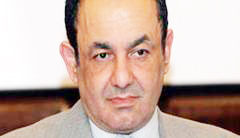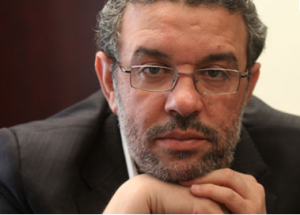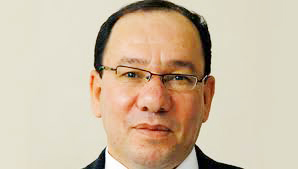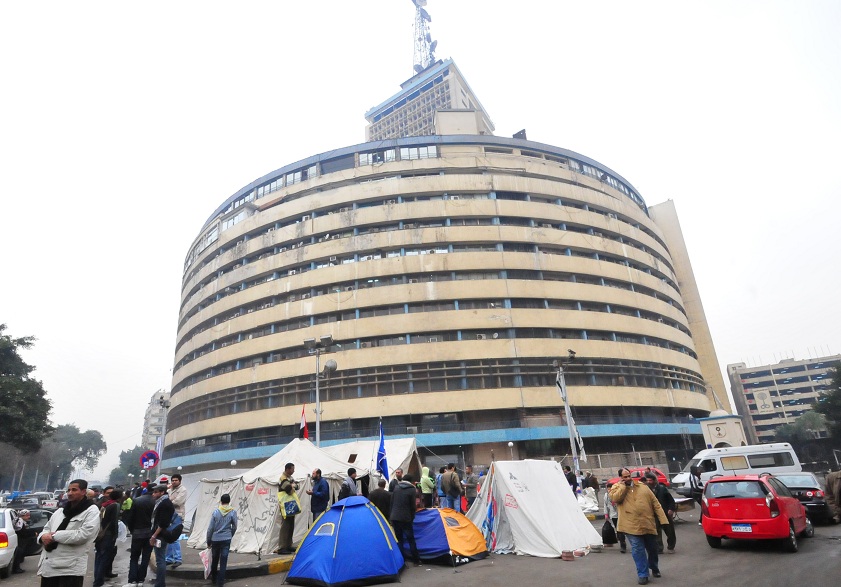Writers in several newspapers hve focused their commentaries on the recent group of Iranian tourists who visited the Upper Egyptian city of Luxor. A few writers criticised the negative reactions of the Salafis in Egypt, who fear potential Iranian influence on the country. In another note, some commentaries have explored Egyptians’ hatred towards Morsi arguing that this hostility goes back to the few days before the results of the presidential run-off elections.
The fear from Iran
Amr Al-Shobaki
Al-Masry Al-Youm newspaper
The recent visit of Iranian tourists to the upper Egyptian city of Luxor drove Al-Shobaki to explore Egyptians’ diverse reactions to the event. The ultra-conservative Salafi current in Egypt has been highly critical of how the Iranian tourists poured into Luxor. The writer censures the Salafis’ reactions by saying that although it is their right to spread their ideology and beliefs, it is also Egypt’s right to maintain good diplomatic relations with all countries in the region. Iran, in spite of its alliance with the Syrian regime of Bashar Al-Assad, has common interests with Egypt.
Al-Shobaki asks if it is logical for Egypt, which keeps diplomatic relations with the “Zionist” state of Israel, to cut relations with Iran simply because Salafis fear the Iranian Shia influence on Egypt? The writer states, however, that he has a number of criticisms of Mahmoud Ahmedinejad’s administration and the conservative party in Iran, but this does not relate to Egypt’s aspirations to benefit from relations with the Shia majority country. Al-Shobaki concludes his article expressing his disappointment at the negative reactions from some Egyptians, mainly Salafis, about the Iranian presence in Egypt. He says it is sorrowful to see the country heading in a direction opposed to proper diplomatic relations.
The presidential speechwriter
Mohamed Salmawi
Al-Masry Al-Youm newspaper
Dissecting Mohamed Morsi’s latest presidential address, Salmawi criticises how the president continues to make obvious linguistic mistakes during his speeches. The issue pushed the columnist to inquire about the speechwriter assigned to write Morsi’s speeches. He mentions names of several writers assigned to write for the French president and the US former presidents. Looking at the experiences of presidential statements and speeches said by foreign presidents, Salmawi condemns how poor the language used by Morsi and the repetitive mistakes that appear in almost every speech. During Mubarak’s era, it was known that the veteran journalist Mohamed Hassanein Heikal was assigned to write Mubarak’s speeches, and even those of late presidents Anwar Al-Sadat and Gamal Abdel Nasser.
It was only during Mubarak’s final years that it was discovered that Heikal’s original copies of the speeches were altered with new ones written for Mubarak by his son Gamal. The writer calls upon the presidency to unveil the anonymous identity of the person assigned to write Morsi’s speeches, arguing that the position of the writer for presidential speeches is an official title in the team assisting the president. Therefore, according to Salmawi, Egyptians need to know the identity of the person who writes Morsi’s speeches.
Tourism Tourism
Amr Khafagy
Al-Shorouk newspaper
Khafagy looks at Egypt’s tourism sector and believes authorities need to show it more attention. With the occasion of Iranian tourists visiting Egypt, which was accompanied with an extremely negative reaction from Salafi groups in Egypt, the writer states that Prime Minister Hesham Qandil needs to take quick actions to encourage the sector. Tourism in Egypt is like an orphan, Khafagy states. If the government has lost enthusiasm to bolster tourism in Egypt, the writer refers to three events that were organised by Islamist figures who wanted to show their support to tourism.
The first event was a press conference organised by the Muslim Brotherhood’s Freedom and Justice Party (FJP) in Hurghada, in which the party stressed on the importance of tourism in Egypt (the event was organised amid fears the FJP would scare tourists off the country). The second event was held by Salafist Emad Abdel Ghafour in Sharm El-Sheikh to publicise his new Salafi political party. Finally, the Islamist figures travelled to Germany to attend Berlin’s tourism trade fair. After these moves, the writer thinks that authorities should bravely work towards bolstering tourism without fearing the ultra-conservative Islamist parties. The writer concludes his column stressing that Egypt is one of the largest touristic countries in the world and it is definitely the role of the current administration to make use of that enviable position.
The mistakes of Morsi and the opposition
Wael Qandil
Al-Shorouk newspaper
Although Qandil admits that Morsi has committed a number of big mistakes since the start of his presidency last June, he argues that the hatred towards the president stems back to even before the results of the final round of presidential elections. Qandil doesn’t believe that Morsi’s mistakes are a sufficient justification for trying to incite a coup d’état or encourage the militarisation of politics in Egypt. The writer states that during the few days before the presidential elections’ run-off, there was a famous meeting held in one of Cairo’s Nile side hotels which gathered hard-line political figures, in order to debate which votes will go to Morsi and which will go to his then rival Ahmed Shafiq.
Qandil states that the majority of the participants at the time chose to vote for the ex-regime figure, Shafiq, rather to support the senior leader of the Muslim Brotherhood, Morsi. This is evidence, Qandil says, that hostility towards Morsi dates back to the presidential elections, not only to his “authoritarian” 22 November constitutional declaration. Some of the attendees in the conference even hid their support for Shafiq and claimed they will vote for Morsi to benefit from supporting the Muslim Brotherhood. Finally, Qandil believes that those who dislike Morsi actually hate him for his personality and dedication to his Islamist group, not only because he has marked his first year of presidency with several political mistakes.






